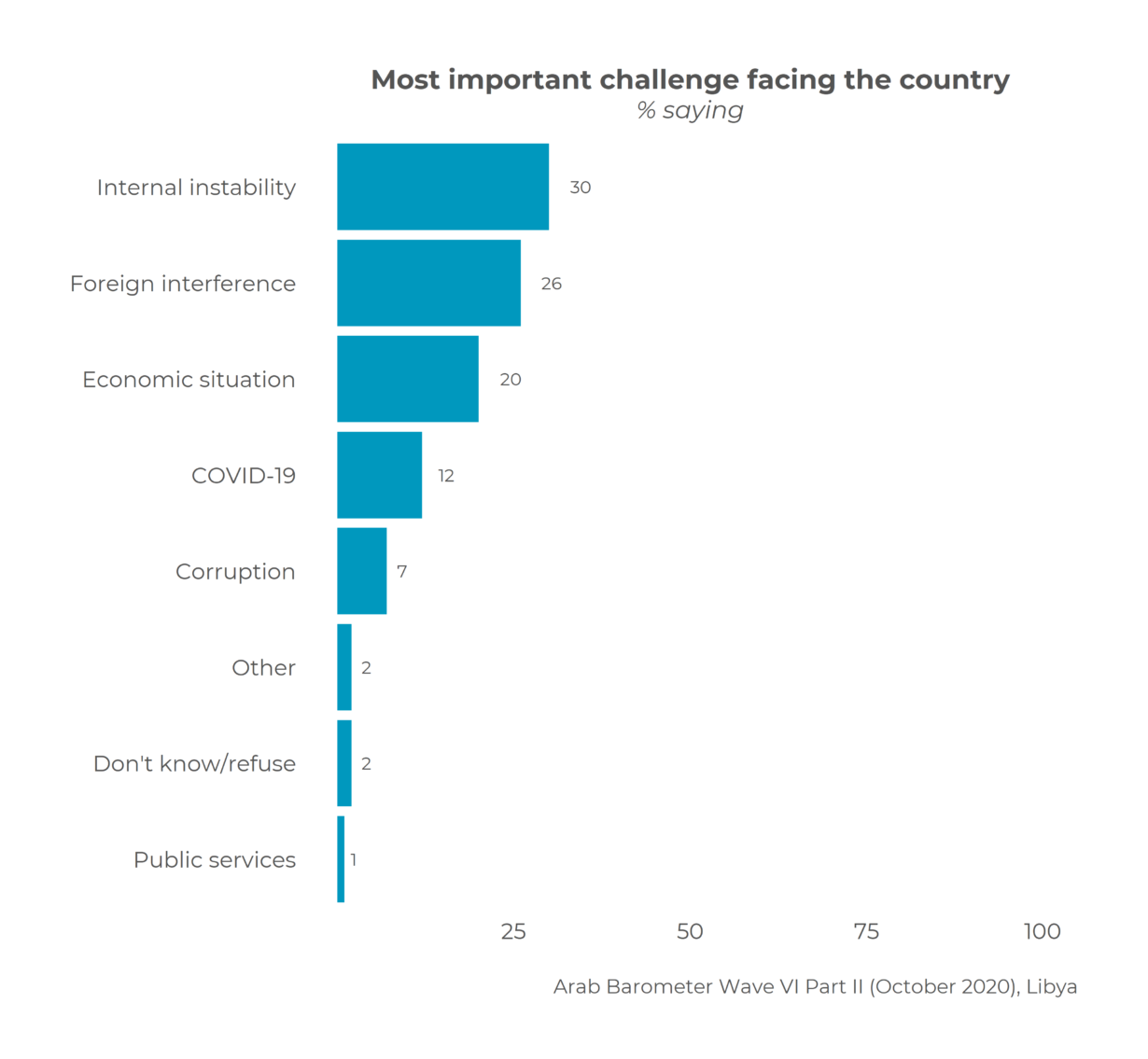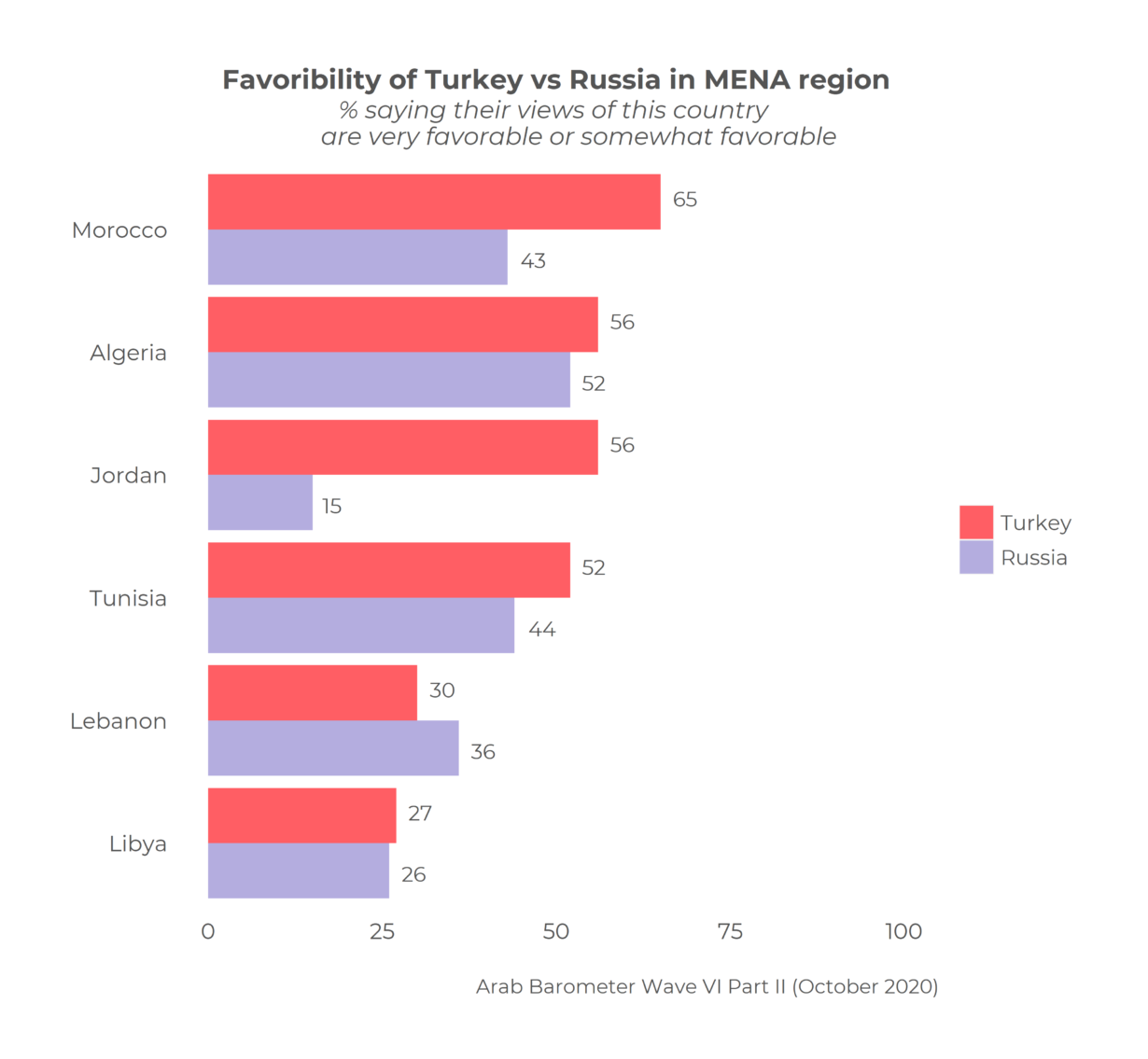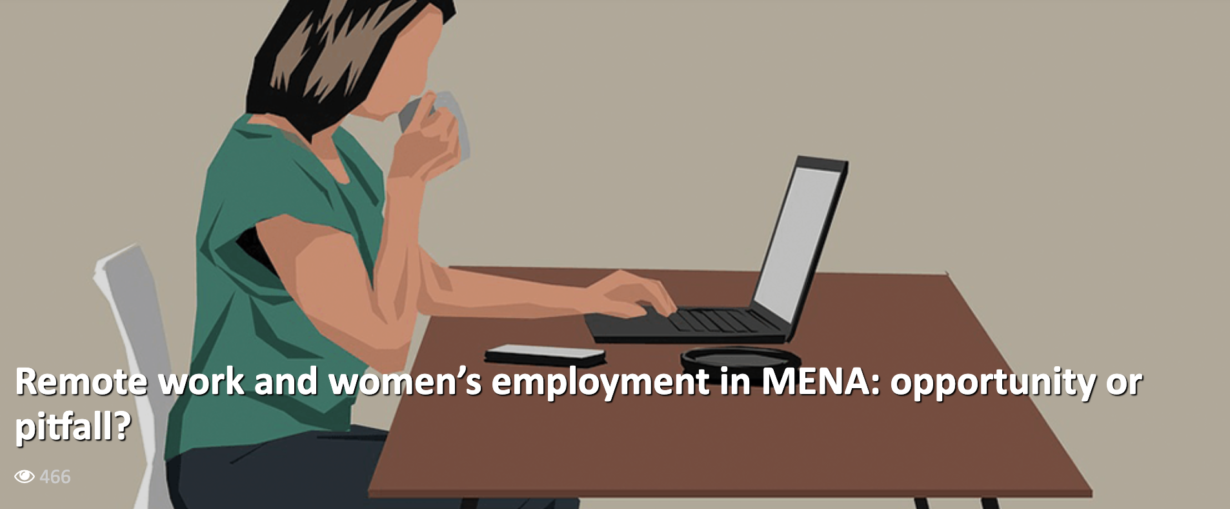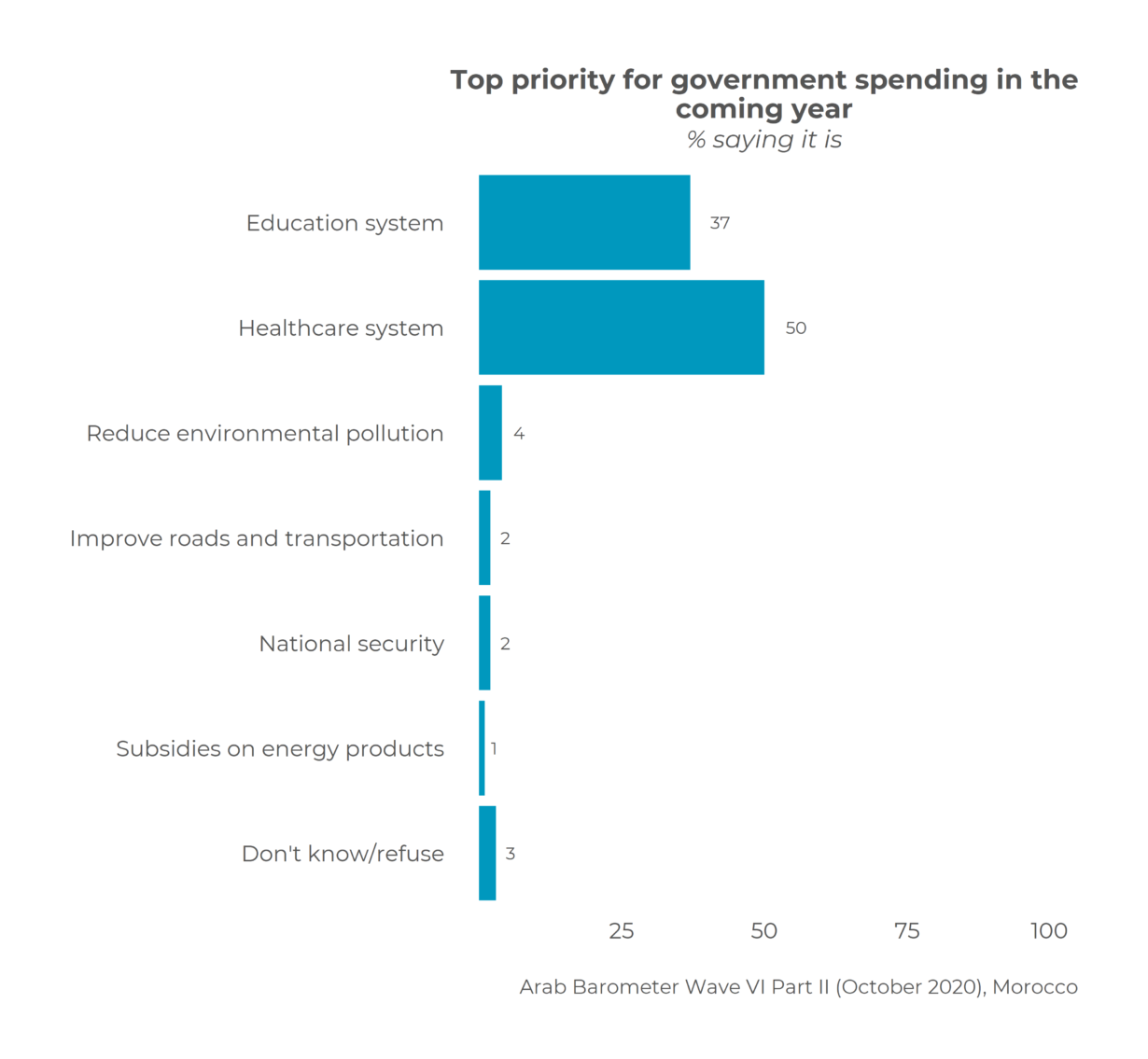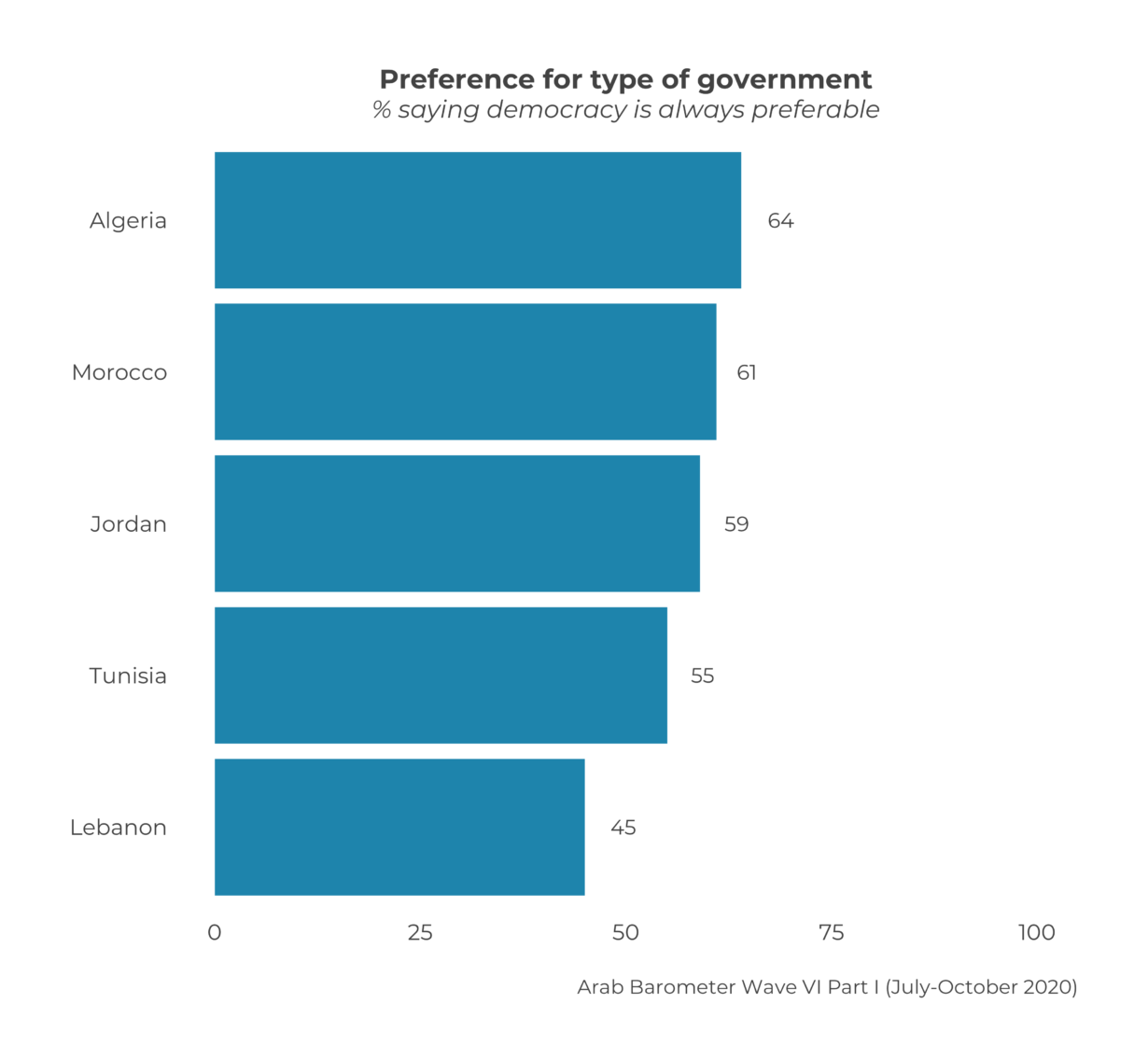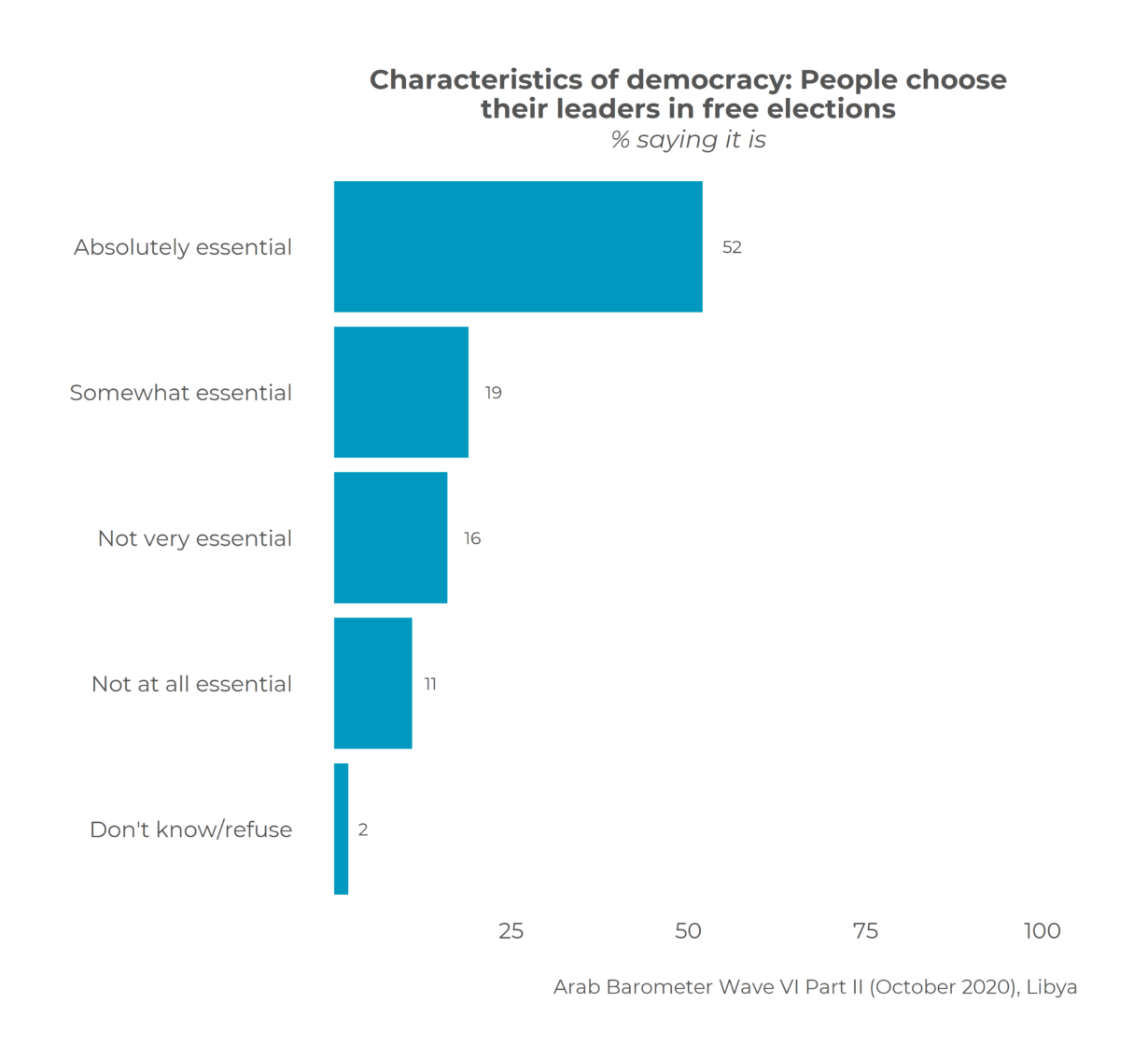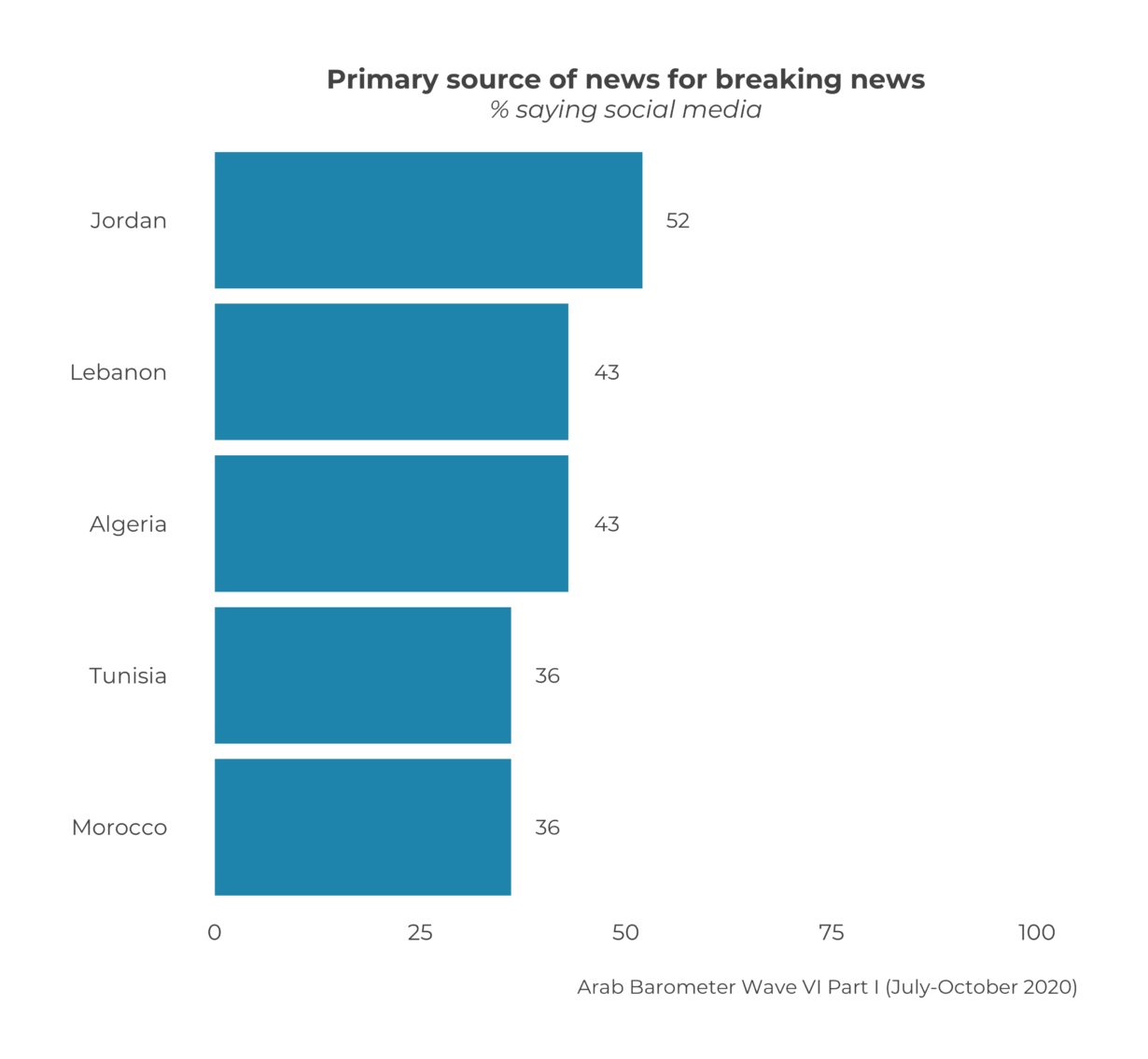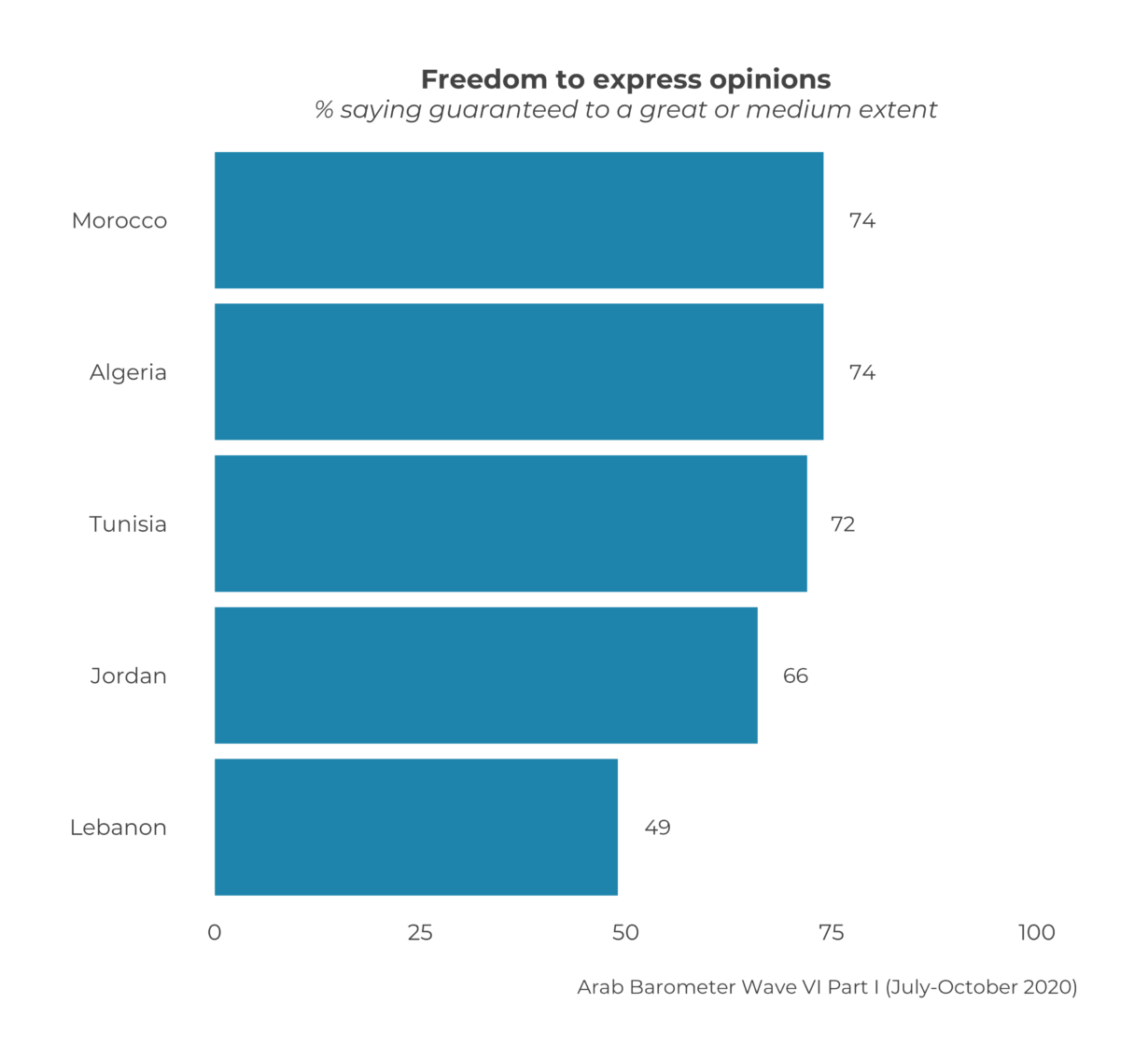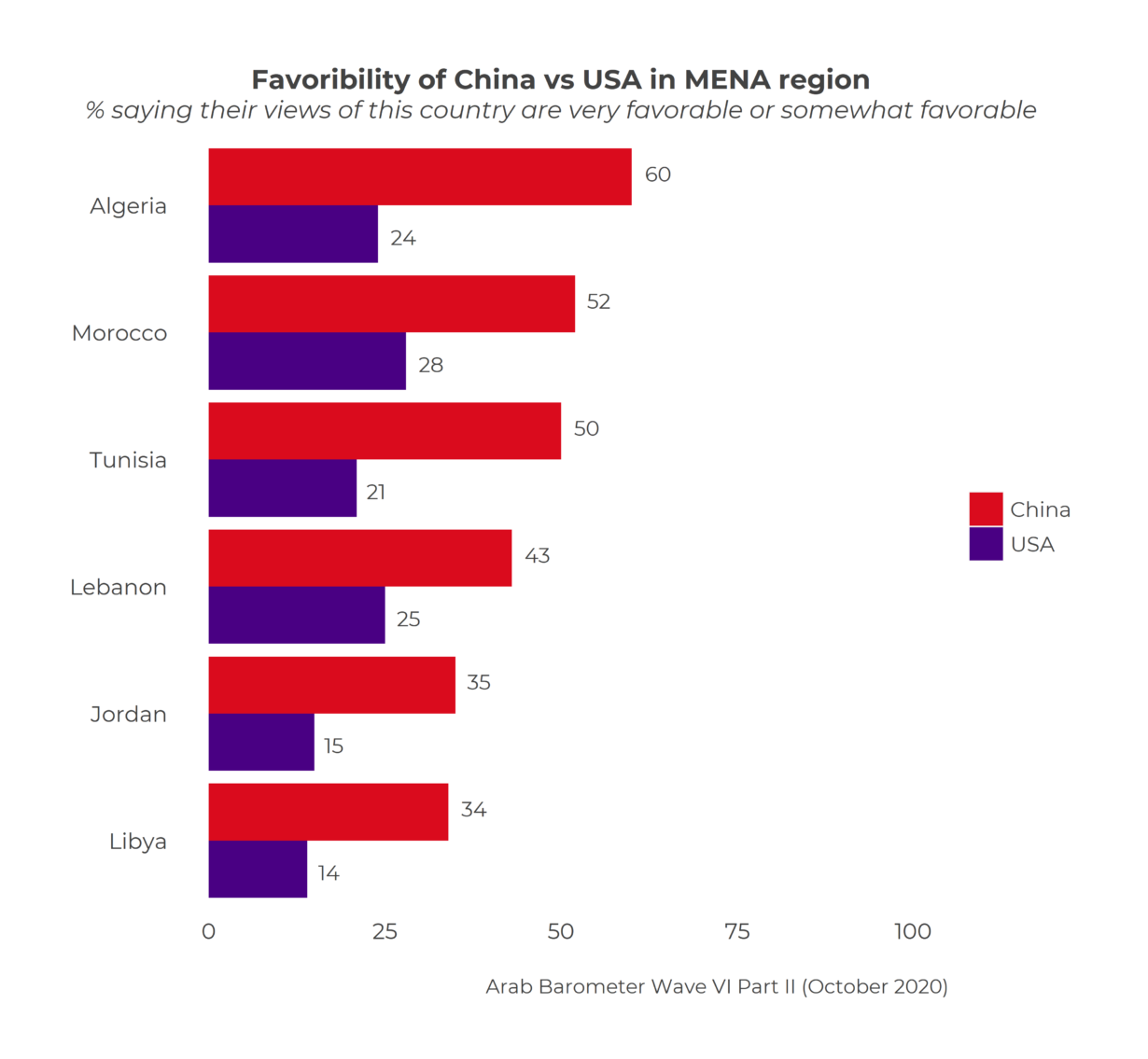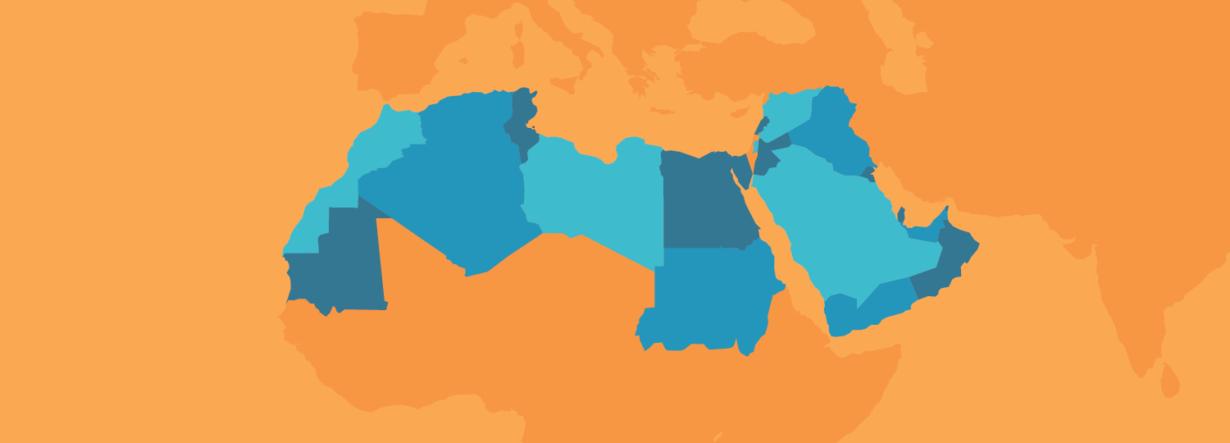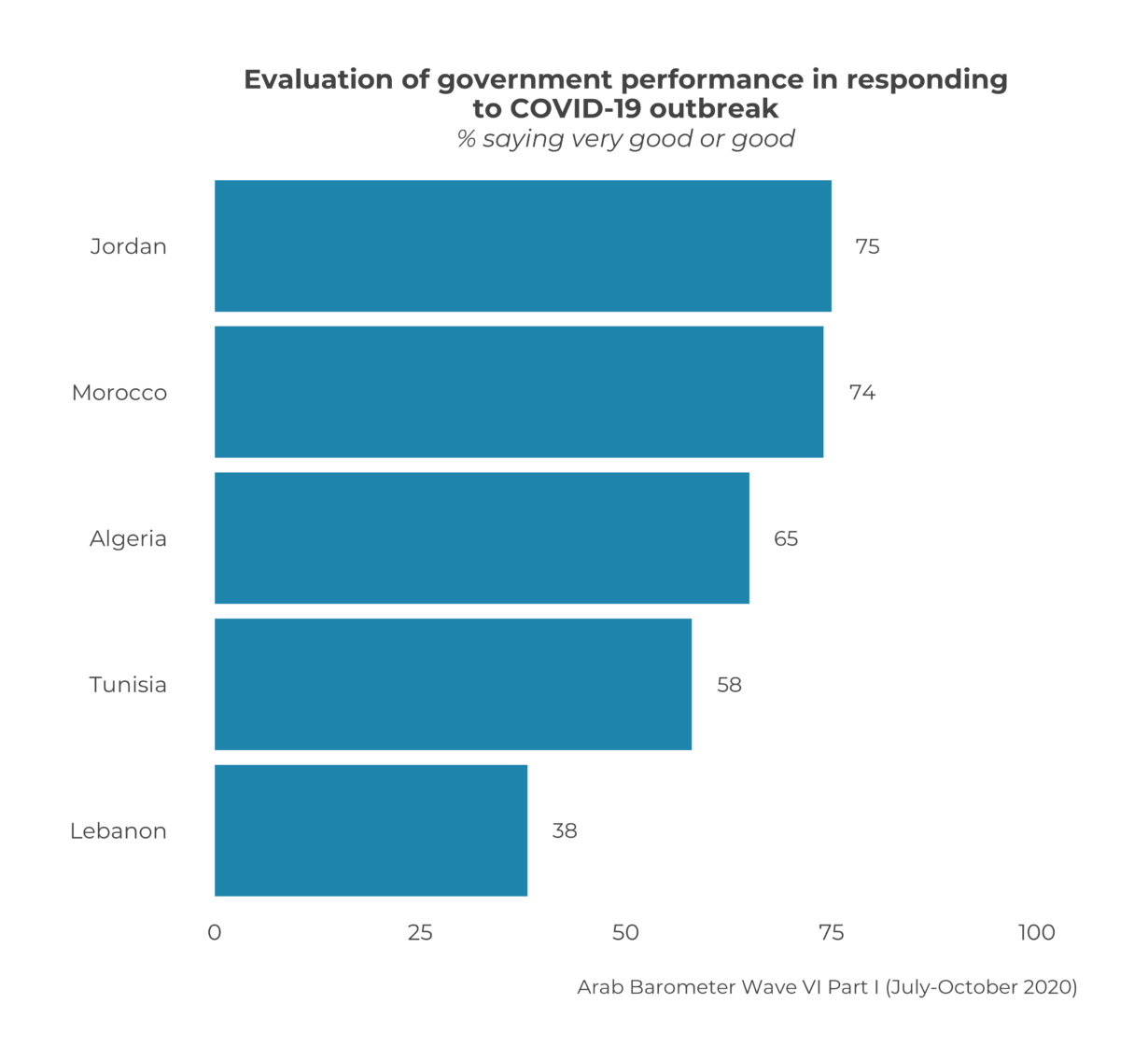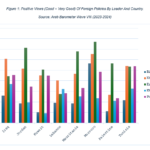Background The following are among the key findings from a nationally-representative public opinion survey conducted in Libya by Arab Barometer in October 2020. The survey conducted 1008 phone interviews with randomly-selected Libyan citizens aged 18 or older. This unique survey captures the sentiments of Libyan citizens during the unprecedented times of the COVID-19 pandemic. The survey has a margin of…
Heavy hands and heavy hearts: the perils of military intervention in MENA
As U.S. influence across MENA has decreased in recent years, many regional actors have tried to fill the gap, increasing their military presence in the region. Russia has reemerged as a significant military player in the region while Turkey has heightened not only its military profile, but also its cultural and economic profile as well. At the same time, the…
Remote work and women’s employment in MENA: opportunity or pitfall?
Many women in the Middle East and North Africa are not in the paid labour force despite being highly educated. Good internet access and the global shift to telework as a result of the pandemic would seem to offer them opportunities for work and greater gender equality. But as this column warns, while online employment lowers barriers to getting women…
Morocco’s Pulse: Ten years after February 20th
On this day in 2011, thousands of Moroccans took to the streets in dozens of cities to demand an end to corruption and authoritarianism, and to call for democracy and dignity. The movement, which was dubbed “the February 20th Movement” — referring to the first day of protests — is considered the largest protest movement in the history of modern…
Algeria’s Pulse: Two Years After “Hirak”
Two years have passed since the advent of the Algerian “Hirak” – the social protest movement that instigated far reaching and substantial political change, primary among them was the prevention of a fifth presidential term for Abdelaziz Bouteflika. In Arab Barometer’s first survey of Wave 6, a substantial majority of Algerians (82 percent) believe that corruption was prevalent in state…
Libya’s Pulse: Ten Years After the Revolution
Ten years after the Libyan revolution, Libya makes international headlines for its civil conflict and institutional breakdown. Still, according to Arab Barometer surveys, a majority of Libyans have consistently said democracy is preferable to any other system of government. In Arab Barometer’s second survey of Wave 6, this is what Libyans said about characteristics of democracy:
Digital media usage during times of distress
COVID-19 has disrupted livelihoods and economies across the world, changing consumption patterns of all different types of products and services, including digital media. The Arab World is no exception, though perhaps the transformation in digital media consumption has been accelerated by the pandemic outbreak. The Arab world has witnessed a steady increase in both internet usage and social media penetration,…
Lebanon’s Pulse on Perceptions of Freedoms
Upon the assassination of Lebanese researcher and political activist Lokman Slim, many have questioned whether or not freedom of expression is guaranteed in Lebanon. In Arab Barometer’s first survey of Wave 6, Lebanon placed last among countries surveyed in perceptions of freedoms.
U.S. & China’s competition extends to MENA
Globally, a new competition is taking place between the U.S. and China, which extends to the Middle East. China has taken an increasing role in the region, providing aid to governments for COVID-related relief, building on years of increased involvement in MENA through its Belt and Road Initiative (BRI). As the Trump administration has changed the terms of U.S. engagement,…
Devotion at Sub-National Level: Evidence from Ramadan Lights in Egypt*
Religion informs political attitudes and hence is consequential for understanding political beliefs and preferences. This is especially true for the Middle East and North Africa (MENA) where religion is a formidable social force, ranging from its influence on the Arab Spring, various civil wars, the failure of democratization, and responses to COVID-19. Islam, especially, factors prominently in social, political, and…
On Conducting Surveys in the Time of Corona: An Interview With Michael Robbins
Elevating the voices of Arab citizens is at the forefront of what we do at Arab Barometer. And, during uncertain times, listening to the needs and concerns of ordinary people is extremely important. As such, Arab Barometer research network recently completed a unique survey that captures the sentiments of Arab publics amid the unprecedented times of the COVID-19 pandemic. However,…
Arabs’ Evaluations of their Governments’ Response to COVID-19
The COVID-19 pandemic hit Arab governments in a difficult time when most were already under pressure. Economic crises and armed conflicts in some countries, like Libya and Syria, have had spill-over effects that continue to be felt across the region. Governments’ failure to address these challenges over the years had shaken the public’s trust in their rulers. The Arab Barometer’s…
Topics
- Charity2
- Corruption117
- COVID-1969
- Democracy43
- Discrimination14
- Economy230
- Education54
- Environment37
- Extremism19
- Freedoms53
- Gender Issues161
- Governance257
- Health46
- International Relations196
- Labor Market36
- Media31
- Migration66
- Political Institutions215
- Political Participation37
- Political Systems64
- Refugees6
- Religion119
- Security34
- Social Justice45
- Wellbeing2
- Youth77
